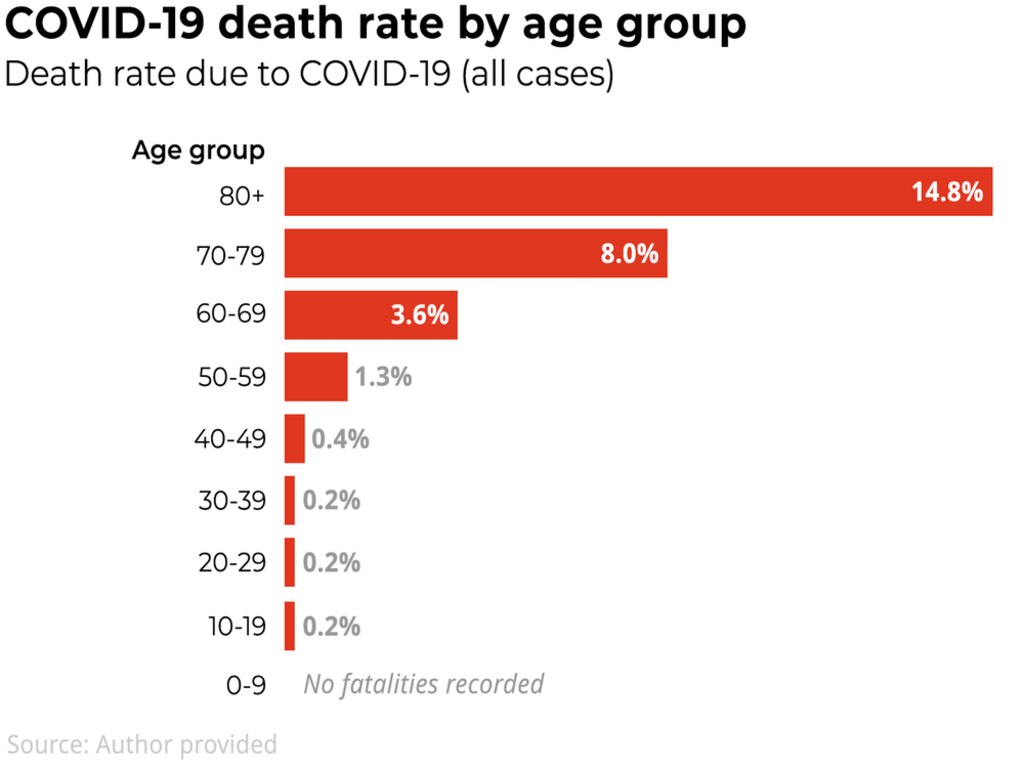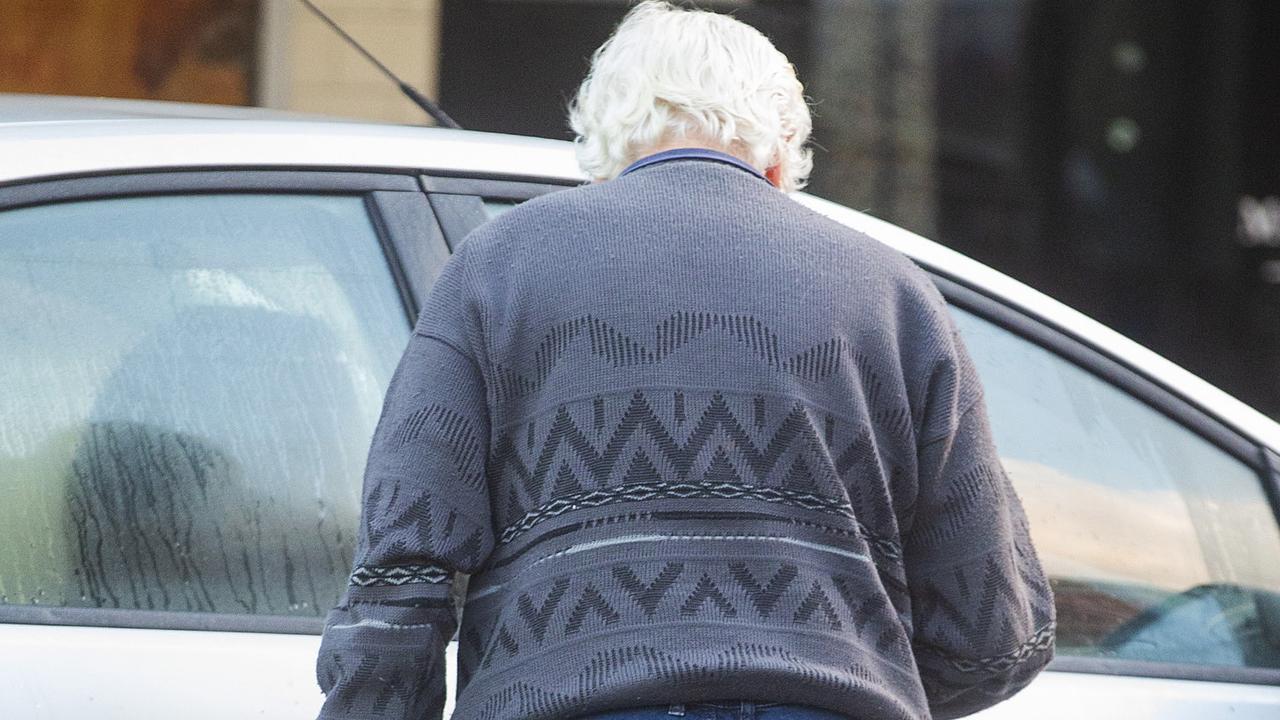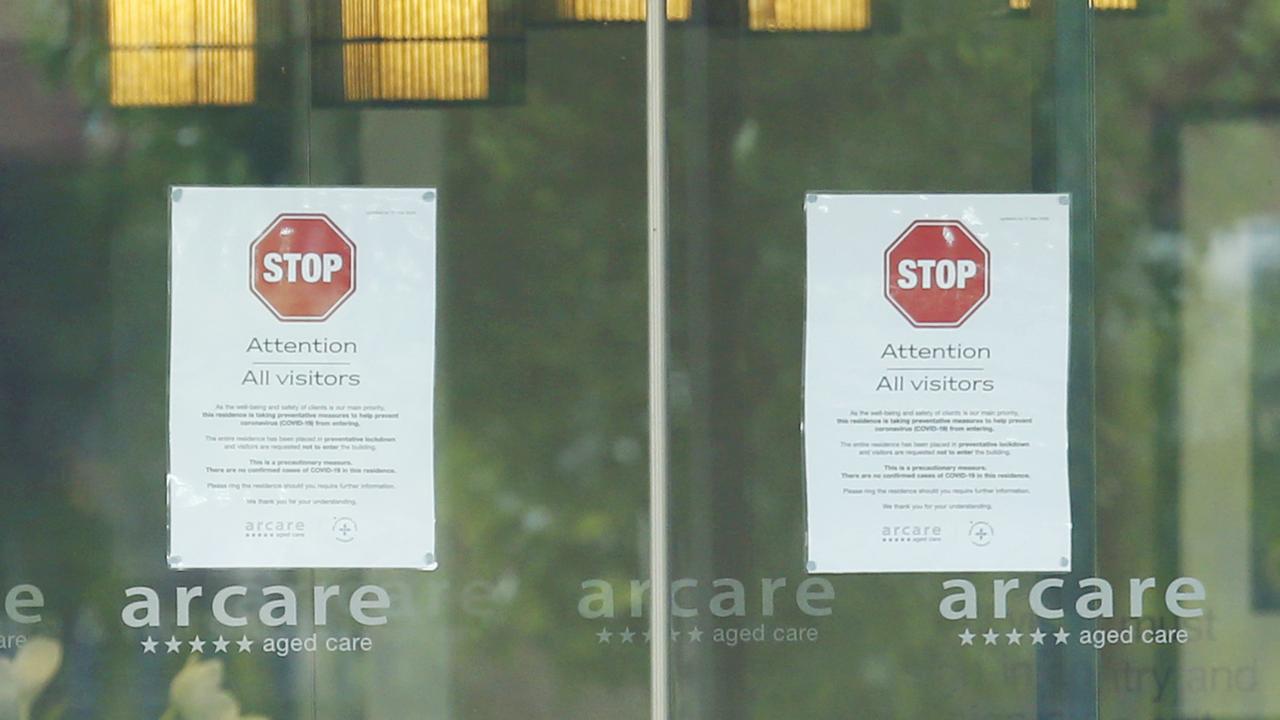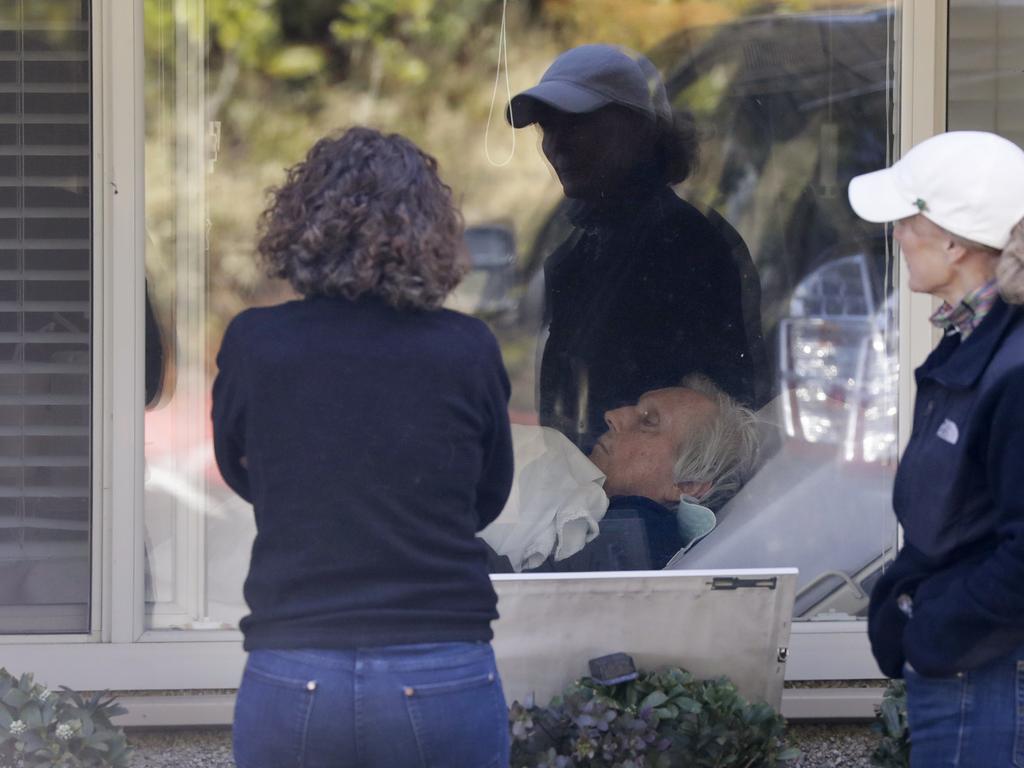Coronavirus in Australia: How to protect elderly, who are most at risk of death
Coronavirus presents a risk to the whole community, but one large group is most vulnerable – and 15 per cent of the infected will likely die.

An infectious disease specialist has warned that 15 per cent of Australians aged over 80 who contract coronavirus will likely die.
The rapid spread of COVID-19 poses a risk to the whole community and governments are taking urgent steps to battle the pandemic, from banning gatherings to imposing restrictions on the operation of aged care facilities.
The elderly, particularly older Aussies with pre-existing health conditions, are especially vulnerable to coronavirus, health authorities say.
There are ways seniors can protect themselves – and guidance on how their loved ones can avoid infecting them.
IN THE FIRING LINE
La Trobe University infectious disease specialist Hassan Vally said the death rate for coronavirus began to rise for people over 50 years old.
“Those under 50 years who are infected have a death rate of 0.2 to 0.4 per cent, while for those 50 to 59 years, it’s 1.3 per cent,” Associate Professor Vally said.
“For those 60 to 69 years, it’s 3.6 per cent, for 70 to 79, it’s 8 per cent and for those over 80, it is 14.8 per cent.
“People over the age of 80 years and those with chronic diseases are the most vulnerable. For those over 80, approximately 15 per cent of those infected will die.”
RELATED: Follow the latest coronavirus updates

But the risk of death significantly jumps among people with pre-existing health conditions such as cardiovascular disease, diabetes and chronic respiratory conditions.
“The likelihood of having chronic conditions increases markedly as you age,” Associate Professor Vally said.
“Four in five Australians aged 65 years and over have at least one chronic condition.
“But the presence of chronic conditions only partially explains the high death rate in older people. As we age, our immune system weakens. This makes us more vulnerable to infections of all types.
“And any sort of challenge to the body can do more damage.”
Authorities have developed the Australian Health Sector Emergency Response Plan for coronavirus, which has two primary focuses – slowing the spread and protecting the vulnerable.
“Slowing the spread will flatten the curve — essentially preventing a spike in cases that the health system could not manage, and saving lives,” a Department of Health spokesperson said.
“We are encouraging all Australians to practise social distancing to slow the spread of COVID-19. These precautions are most important for people over 60, particularly if they have a chronic disease.”
RELATED: Why you still can’t get toilet paper at the supermarket
RELATED: What are your chances of dying from coronavirus?

PROTECTING THE ELDERLY
Particularly vulnerable people, including the elderly, are being encouraged to avoid large public gatherings that are non-essential and to keep a distance of 1.5m from other people whenever possible.
“Minimising physical contact such as shaking hands, especially for older people and people with existing health conditions, is (advised),” the Health Department spokesperson said.
Elderly Australians who are feeling unwell should stay at home and seek medical advice if they are concerned.
“People don’t need to completely change their daily routine,” the spokesperson said. “Practising hand hygiene and cough etiquette and taking social distancing precautions can help protect themselves and others who are most at risk.”
The Health Department has also urged the elderly to consider their own risks when it comes to decisions around caring arrangements for their grandchildren.
Yesterday, Prime Minister Scott Morrison outlined tough new restrictions designed to protect and support elderly and vulnerable Australians.

“Aged care is a critical sector that faces staffing challenges as existing staff are either subject to self-isolation requirements due to COVID-19 or are unable to attend work,” Mr Morrison said.
Visitors and staff are now banned from entering aged care facilities if they have returned from overseas in the past 14 days or have been in contact with someone with a confirmed case of coronavirus in the past 14 days.
Anyone with a fever or any kind of respiratory infection symptoms, such as a sore throat, cough, runny nose or shortness of breath, is also barred from entry to an aged care facility.
And from May 1, anyone not vaccinated against influenza is restricted, Mr Morrison said.
The new measures cover measures surrounding visitors to aged care facilities broadly, with management urged to cut the duration of visits as well as “limiting visits to a maximum of two immediate social supports – family members, close friends – or professional service or advocacy at one time, per day”.
“Visits should be conducted in a resident’s room, outdoors, or in a specific area designated by the aged care facility, rather than communal areas where the risk of transmission to residents is greater,” Mr Morrison said.
“No large group visits or gatherings, including social activities or entertainment, should be permitted at this time. No school groups of any size should be allowed to visit aged care facilities.”
Children aged under 16 should be kept away as they’re less likely to comply with personal hygiene guidance.
RELATED: 'Record number' of patients expected in Victoria

AVOIDING LONELINESS
Health experts say loneliness is much more than just a feeling – it can have very serious physical and mental illness consequences for the elderly.
Laurie Archbald-Pannone, Associate Professor of geriatric medicine at the University of Virginia, said doctors usually encouraged the benefits of social engagement with their older patients.
“Now, with COVID-19, the times have changed, but along with the risk of coronavirus infection comes the risk of social isolation,” Associate Professor Archbald-Pannone wrote in an article for The Conversation.
Technology offered a way for vulnerable Australians spending lots of time at home in isolation to stay connected to loved ones, she said.
“All sorts of online options exist to talk with family and friends. And you don’t have to be tech-savvy. Doing the basics is easy, and for most people, fun. If setting up an account is daunting, ask a neighbour, niece or nephew for help and a quick tutorial.”

Mr Morrison said aged care facilities would be encouraged to make phone and video calls accessible to all residents to ensure regular communication continues.
“Family and friends should be encouraged to maintain contact with residents by phone and other social communication apps, as appropriate,” he said.
CHECK ON LOVED ONES – FROM A DISTANCE
At a press conference yesterday, the PM hit out at people who’ve been unnecessarily hoarding essential items, from toilet paper to canned food.
Critical shortages at supermarket have left many vulnerable people forced to go without, thanks to panic-buying and stockpiling.
Mr Morrison described it as “un-Australian” and urged people to remain calm so that nobody missed out.
Last night on Sky News, he praised those who were doing the right thing, saying they were “the Australians who’ll ensure that we get through this together”.
“And I want to thank those Australians who have been helping their fellow Australians and supporting them and making sure that those who are in self-isolation, when they've been taking the meals or just checking in on them, those have been looking after the elderly,” Mr Morrison said.
“Those who've been doing the right thing. I want to say thank you.”




